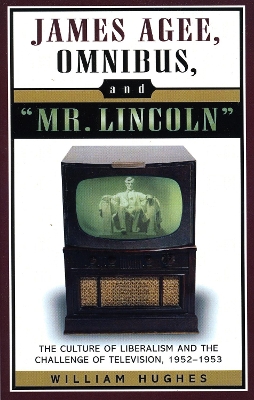In 1952 CBS, in conjunction with the Ford Foundation, launched Omnibus, a remarkable experiment in television. The objective was to raise the programming standards of an emerging medium that figured to profoundly influence American life. The centerpiece of Omnibus during its inaugural season was "Mr. Lincoln," a series of five films about the early life of our foremost political icon. James Agee, the distinguished American author, was the principal creator of "Mr. Lincoln." At the time, his scripts were hailed as 'the most beautiful writing ever done for television," and even today Agee's characterization of Lincoln remains " among the finest—perhaps the finest—film about Abraham Lincoln ever made." Regrettably, this important and sensitive work, a revealing expression of American culture at mid-century, has been consigned to the archives and has not been available to the public for many years. Author William Hughes aims to keep alive Agee's neglected masterpiece, placing "Mr. Lincoln" in the context of the period's prevailing ideology (Cold War liberalism) and conveying the institutional framework in which the work originated. In addition, Hughes takes into account Agee's personal experiences, his social and political views, and his related writings (for and about film), all of which came into play when he reworked the Lincoln legend for the television age. Based on extensive archive research and an interview with Norman Lloyd, who directed the five films, this book fully documents the cultural and historical importance of "Mr. Lincoln."
- ISBN10 081085175X
- ISBN13 9780810851757
- Publish Date 2 August 2004
- Publish Status Active
- Publish Country US
- Imprint Scarecrow Press
- Format Paperback
- Pages 188
- Language English
